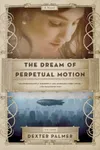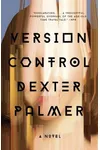Picture an American novelist who weaves speculative fiction with literary finesse, crafting tales that linger like a haunting melody—meet Dexter Palmer! Known for blending steampunk, time travel, and historical intrigue, Palmer’s novels, like The Dream of Perpetual Motion and Version Control, explore technology’s dance with the human soul. With a Ph.D. from Princeton and a knack for SAT questions, he’s a unique voice in contemporary literature.
Palmer’s work, influenced by literary titans like Thomas Pynchon, doesn’t just entertain—it challenges us to ponder the interconnectedness of history, science, and emotion. Ready to dive into his world? Let’s explore the man behind the stories.
The Making of Dexter Palmer
Born in the 20th century, Dexter Palmer grew up with a love for literature that led him to Stetson University for his bachelor’s degree. His academic journey peaked at Princeton University, where he earned a Ph.D. in English Literature, diving deep into the works of James Joyce, William Gaddis, and Thomas Pynchon. This trio’s influence—especially Pynchon’s knack for connecting everything—shaped Palmer’s genre-bending style. While at Princeton, he also made waves by organizing the first Ivy League academic conference on video games, showcasing his curiosity for emerging cultural forms.
Before becoming a novelist, Palmer crafted SAT questions, honing his ability to distill complex ideas into precise prose. This analytical edge, paired with his literary passion, set the stage for his debut novel, a 14-year labor of love that would redefine steampunk.
Dexter Palmer’s Unforgettable Stories
Palmer’s first novel, The Dream of Perpetual Motion (2010), is a steampunk masterpiece inspired by Shakespeare’s The Tempest. Set in an alternate mid-20th-century America, it follows Harold Winslow, trapped on a zeppelin, wrestling with love, technology, and a perpetual motion machine. Critics, like Jeff VanderMeer in The New York Times, praised its “sophisticated, subversive” take on steampunk, while Elizabeth Hand called it “extravagantly wondrous.”
In 2016, Palmer released Version Control, a near-future sci-fi gem about Rebecca Wright, a woman sensing a “wrongness” in reality as her physicist husband tinkers with a causality violation device (think time machine, but fancier). Hailed by GQ and NPR as a 2016 standout, it blends hard science with emotional depth, earning comparisons to Jonathan Franzen for its literary heft. Palmer’s third novel, Mary Toft; or, The Rabbit Queen (2019), dives into historical fiction, reimagining an 18th-century medical hoax with philosophical wit. Critics lauded its “impeccable research” and “cheerful, compassionate” storytelling.
Palmer’s style is a literary tightrope walk—think Pynchon’s paranoia, Philip K. Dick’s human focus, and a dash of Angela Carter’s whimsy. His novels tackle big ideas (time, belief, identity) through vivid characters and intricate plots, making speculative fiction feel profoundly personal.
Why Dexter Palmer Matters
Dexter Palmer’s impact lies in his ability to bridge genres, blending speculative fiction’s wild imagination with literary fiction’s emotional core. His novels don’t just speculate about technology’s future; they probe how it shapes our hearts and histories. By drawing from Pynchon’s interconnectedness and Joyce’s narrative complexity, Palmer offers readers a lens to question reality itself.
In a world obsessed with fleeting accountancy, his work inspires writers and readers alike, cementing his place as a vital voice in contemporary American literature. His influence extends to academic circles, where his Princeton conference on video games foreshadowed the medium’s cultural rise.
- Born: 20th century, United States
- Education: B.A. from Stetson University, Ph.D. in English from Princeton
- Key Works: The Dream of Perpetual Motion (2010), Version Control (2016), Mary Toft; or, The Rabbit Queen (2019)
- Notable: Organized the first Ivy League conference on video games
About Dexter Palmer
Snag Version Control and dive into Dexter Palmer’s mind-bending blend of sci-fi and soulful storytelling!



